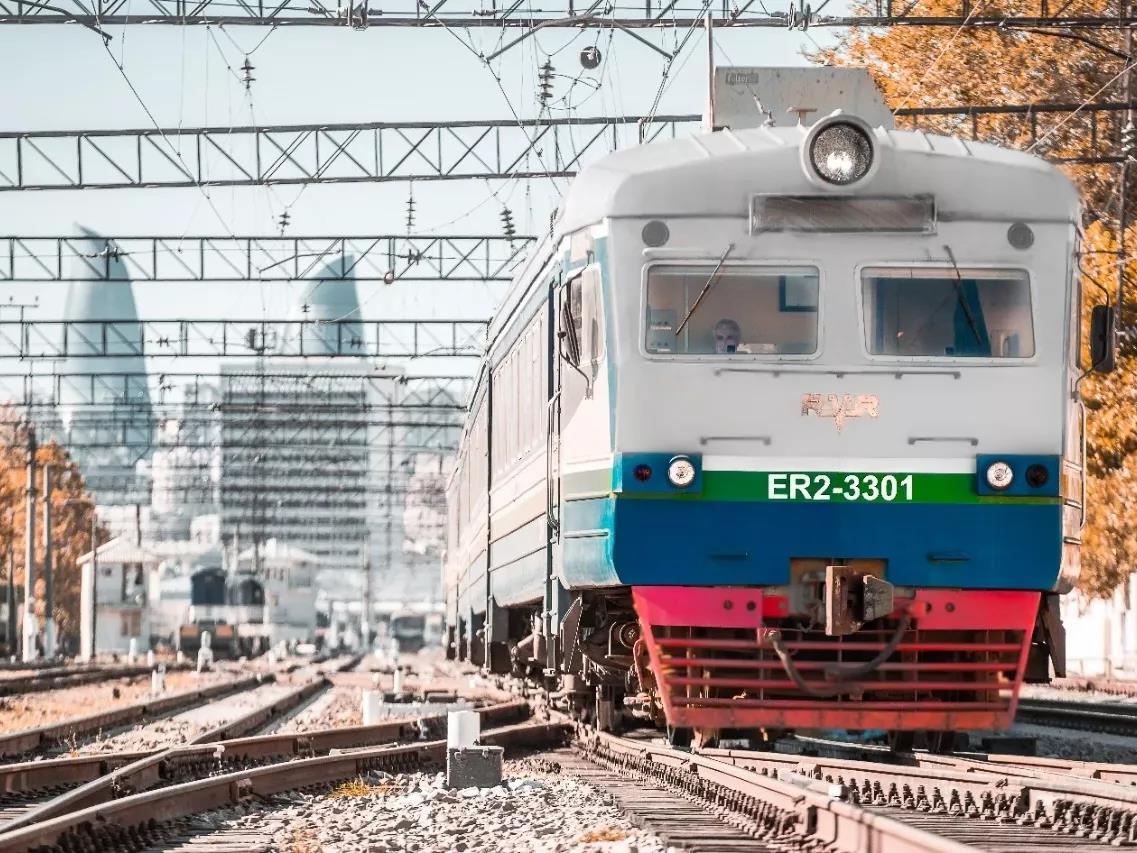
North-South Transport Corridor In Full Swing: Pathway To Enhanced Connectivity
Despite global uncertainties, including last year's economic downturn, persistent inflation concerns, and other negative trends, Azerbaijani-Russian economic relations continue to thrive. Both nations are deepening their trade ties, enhancing cooperation across various sectors like transport, logistics, and energy, while simultaneously diversifying their non-oil industries and boosting mutual investments.
Azerbaijan's recent advancements in large-scale infrastructure projects, particularly in the transport sector, further reinforce this growing relationship. One of the most significant projects currently underway is the optimization of the country's transit potential-a core element of President Ilham Aliyev's economic diversification strategy. In this context, the North-South Corridor project stands out as a vital initiative that warrants attention.
Later this month, for the first time, a direct freight train will depart on the Ulyanovsk (Russia) - Baku (Azerbaijan) - Astara (Iran) route, marking a milestone in the North-South Corridor's development. Alexey Russkikh, governor of the Ulyanovsk region, shared this significant update during a recent meeting on the region's comprehensive development. The train, consisting of 70 modified wagons, will transport 3.5 thousand tons of agricultural, industrial, and wood processing products. This route enables Ulyanovsk enterprises to export goods such as grain, flour, car parts, and construction materials while providing Azerbaijan with new opportunities to export goods to Russia and the broader Asian market.
This initiative is a branch of the larger North-South Corridor, underscoring its strategic importance to both Russia and Azerbaijan. Additionally, agreements signed between Ulyanovsk Region and the Republic of Azerbaijan will facilitate the joint use of logistics services, further enhancing the corridor's operational capacity.
Equally noteworthy is the "Middle Volga - Caspian Sea - Persian Gulf" trade and logistics corridor, another key project aimed at significantly boosting trade between Russia, Azerbaijan, and the Middle East. The modernization of river and port infrastructure is set to play a pivotal role in this initiative, further cementing the region's status as a logistics hub.
The North-South Corridor in prospect
The International North-South Transport Corridor (INSTC) is primarily designed for transporting cargo from India and the Persian Gulf region to Russia, Western Europe, the Baltic States, and Scandinavian countries. The main advantage of the North-South Transit Corridor compared to other routes is that the transit distance and time are reduced by two to three times. While maritime transport through the Persian Gulf, the Indian Ocean, the Suez Canal, the Mediterranean Sea, and the Baltic Sea to Helsinki takes 45-60 days, the North-South Transit Corridor reduces this period to 20-25 days. The agreement on the creation of the North-South International Transport Corridor was signed between the governments of Russia, Iran, and India on September 12, 2000. The Republic of Azerbaijan joined this agreement based on the Law dated September 20, 2005. In Azerbaijan, starting from 2017, a number of initiatives have already been implemented to develop the potential of the North-South Transport Corridor (NSTC). Specifically, railway tracks have been laid from the border town of Astara directly to the state border, a railway bridge has been constructed, as well as new terminals and border checkpoints, including the largest grain terminal in the region, AstaraGrainTerminal, with a capacity of 500 thousand tons of grain per year.
Recall that more than a year ago, there was a crucial turning point in the implementation of this project: on May 17, 2023, the heads of the transport departments of Russia and Iran signed an agreement on joint financing, design, and construction of a 170-kilometer railway section from Rasht to Astara. According to the agreements, Russia's share in the intergovernmental loan for this project will be 85 per cent. Also from January to July this year, Azerbaijan saw a transit freight volume of 434,651 tons along the North-South international transport corridor, marking a 25 percent increase compared to the same period last year.
Strategic necessity amidst Zangazur complexity
The completion of the North-South transport corridor is crucial for Russia. However, there are significant delays on the Iranian side, particularly with the Rasht-Astara segment. Moscow is fully aware of these bureaucratic hurdles. Despite substantial Russian investments and oversight of the construction, it is clear that completing this section of the corridor will take time and will not be resolved immediately. Nevertheless, Russia urgently needs the transport corridor; it is, in fact, a matter of strategic necessity for Moscow. Access to Middle Eastern markets could greatly boost Russia's economic dynamics, enhance international trade, and provide other benefits. Consequently, Russia is actively pursuing the launch of the Zangazur corridor. If the corridor becomes operational, it would enable integration with the North-South corridor, allowing railway transit through Armenia and Nakhchivan to reach Julfa, where they could connect with the Iranian railway system. This would facilitate further movement across Iran, accessing markets in the Persian Gulf and the Arabian Sea, offering expansive and clear prospects.
Nevertheless, the implementation of the North-South Corridor not only strengthens Azerbaijani-Russian relations but also contributes to the economic development of the broader South Caucasus region. With trade turnover between the two countries having already doubled, this project symbolizes the mutual dedication to fostering a stable, prosperous partnership amidst a turbulent global landscape.
For last note that an international forum on the "North-South" international transport corridor (ITC) will take place in Astrakhan, Russia, from November 13-15. The event, titled "North-South - New Horizons," aims to enhance trade and economic relations between the CIS countries, the Middle East, South Asia, and East Africa, and to establish a new business concept for the "North-South" corridor.
Legal Disclaimer:
MENAFN provides the
information “as is” without warranty of any kind. We do not accept
any responsibility or liability for the accuracy, content, images,
videos, licenses, completeness, legality, or reliability of the information
contained in this article. If you have any complaints or copyright
issues related to this article, kindly contact the provider above.

















Comments
No comment